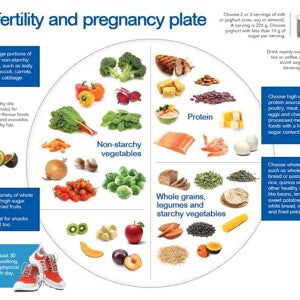Search

How to cope with first trimester anxiety
First Trimester Anxiety? 1 in 10 pregnant women experience this pregnancy symptom in their first trimester. Here’s how to keep the feelings under control.

C-sections: What you need to consider
How you bring baby into the world is a personal decision, with different factors at play. Here’s a few things to consider about a caesarean—or C-section.

Going back to work after a baby
If your family finances demand that you’re to become a working mom, you’re more than likely planning your return to work while navigating a rollercoaster of emotions—from feeling

Baby sleep routine tips
Baby sleep routines can vary enormously, often causing poor parents many a sleepless night.

Questions to ask at your first prenatal appointment
Your very first prenatal appointment is here—exciting! With so much going on, it helps to have a list of pregnancy questions on hand to ask your healthcare provider.

Your checklist of antenatal testing questions
Baby health checks start before they’re even born. Here are some questions you may want to ask your healthcare provider about antenatal testing.

Questions to ask at your 12-week scan
Finally, your 12-week scan is here! This pregnancy scan is an important one. It can also be very emotional, so it helps to have a list of questions pre-prepared.

Your maternity leave and maternity pay checklist
It might seem a while away, but once you’ve made your pregnancy announcement, it’s a good idea to begin maternity leave preparations and find out if you’re entitled to maternity pay.

Baby names help
Need baby names inspiration? Here comes the fun bit! You may already have a favorite, or perhaps you’re waiting until you meet junior face-to-face.

Working out your birth plan
Giving birth is less daunting if you have an easy birth plan in mind to help the day go as smoothly as possible. See our birth plan guide below.

What to include in your hospital bag
Not sure what to pack in your hospital bag? We have put together a simple hospital bag checklist with all the essentials.

Breastfeeding essentials
Planning to breastfeed but not sure what you’ll need? Here is a list of our first-time breastfeeding tips to help you prepare.

Baby nursery list to help you
As you get excited of the arrival of your baby, planning the baby’s nursery is one of those unforgettable moments with plenty of excitement.

Am I ready to give birth? Signs of labor checklist
You probably think it’ll be obvious when you go into labor, but it isn’t always what you see in the movies. Here are a few signs of labor to look out for.

Understanding why babies cry
Wondering why babies cry? If you’re struggling to understand what your baby is trying to tell you, check this list for possible clues to help.

Coping with baby blues
Once your little one has arrived, it’s easy to forget about you—but a happy mom means a happy baby.

How to help baby’s tummy problems
Baby tummy problems? If only they could tell you what’s wrong. Until we locate a baby whisperer, here are a few ways you can help an unsettled baby.

Which foods boost fertility?
If you want to have a baby, you need to pay attention to your diet. Discover below which foods are high in iron and folic acid, which are essential for a healthy pregnancy.

Introducing Developmental Milestones
Welcome!

Tips to budget for baby
There are many factors to consider before dedicating yourself to raising and budgeting a child for the next 18 years or more.

Nourishing foundations … ready, steady, go!
Welcome

Practical Tips for Developing Language Skills
You know it’s important to teach children words

How to celebrate your child’s efforts
When we think of laying strong foundations to help prepare our children to succeed in the 21st century, various words come to mind that start with “c”, such as teaching them to be creative, communi

Welcome to the NESTLÉ® NANKID® Growing Kid Academy
The essential parenting guide to your Growing Kid, their Growing Body and Growing Mind.

NESTLÉ® NIDO® 3+
NESTLÉ® NIDO® 3+ is a powdered drink for growing children aged 3-5 years. It is tailored to meet the unique needs of South African little children. These nutrients support normal cognitive and immune function. Immuno-nutrients help contribute to the normal functioning of the immune system and mega-3 fatty acids with added DHA support cognitive development for little ones (3-5 years) to achieve their first wins.

EARLY CHILDHOOD DEVELOPMENT / HAPPY KIDS LEARN BETTER
Children are known for their natural curiosity. They want to see, smell, touch, taste and hear everything.

IRON SUPPLEMENTS FOR KIDS
Why Is Iron Essential For Healthy Development in Children?

FAQ Nido
Have a question about our product and/or our production processes? Feel free to search by putting some keywords or to browse the topics below to find what you are looking for

NIDO 1-3 FEEDING TABLE - IMPROVED NIDO 3+ RECIPE
Every parent or caregiver with children, especially those aged 3 years and older, knows the struggle and strife when it comes to feeding them, and the ongoing and sometimes unanswered questions tha


